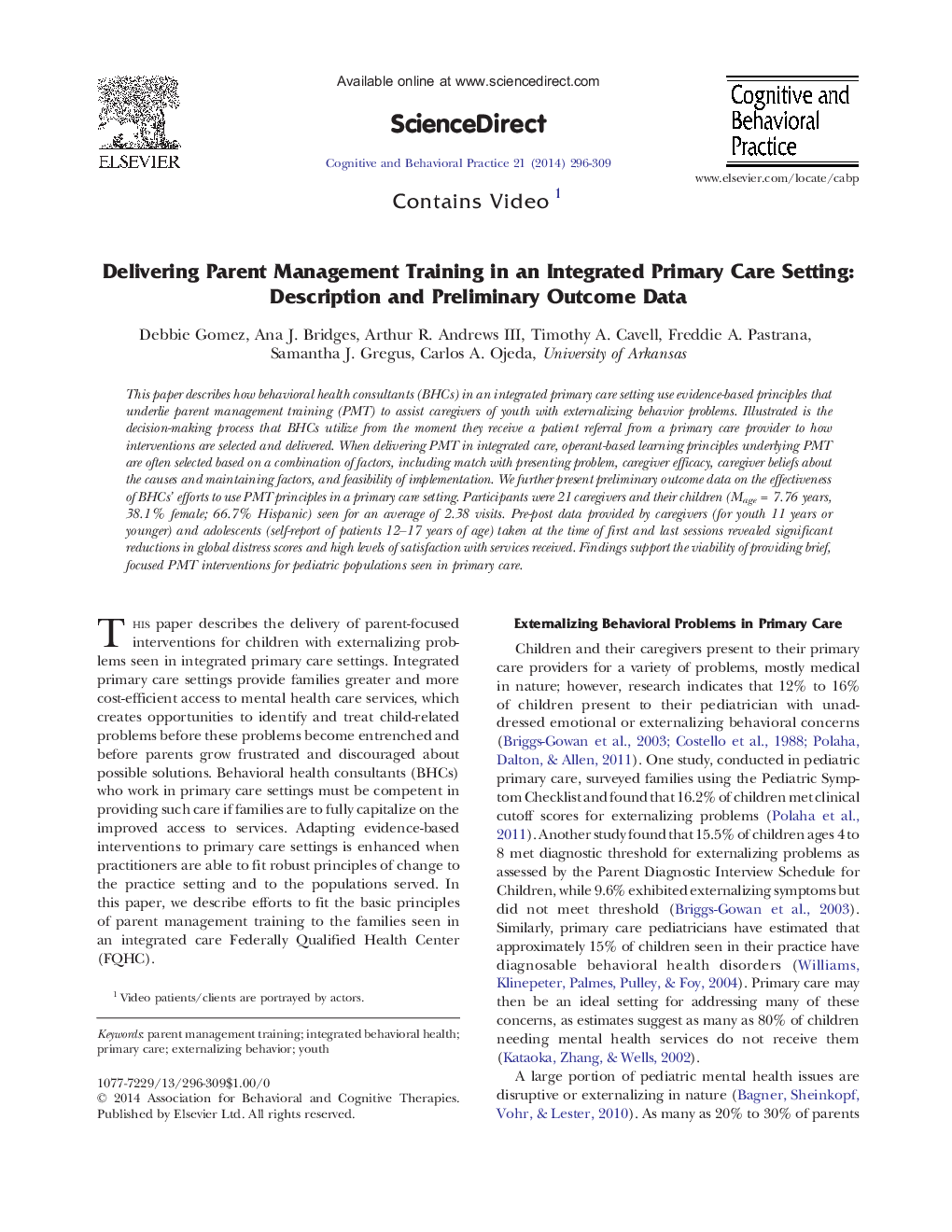| Article ID | Journal | Published Year | Pages | File Type |
|---|---|---|---|---|
| 904331 | Cognitive and Behavioral Practice | 2014 | 14 Pages |
•We describe how to use parent management training (PMT) in integrated care settings.•A modular approach to target the level of intervention is described.•Case vignettes and videos demonstrate this modular approach.•Preliminary outcome data support the efficacy of PMT in integrated care settings.
This paper describes how behavioral health consultants (BHCs) in an integrated primary care setting use evidence-based principles that underlie parent management training (PMT) to assist caregivers of youth with externalizing behavior problems. Illustrated is the decision-making process that BHCs utilize from the moment they receive a patient referral from a primary care provider to how interventions are selected and delivered. When delivering PMT in integrated care, operant-based learning principles underlying PMT are often selected based on a combination of factors, including match with presenting problem, caregiver efficacy, caregiver beliefs about the causes and maintaining factors, and feasibility of implementation. We further present preliminary outcome data on the effectiveness of BHCs’ efforts to use PMT principles in a primary care setting. Participants were 21 caregivers and their children (Mage = 7.76 years, 38.1% female; 66.7% Hispanic) seen for an average of 2.38 visits. Pre-post data provided by caregivers (for youth 11 years or younger) and adolescents (self-report of patients 12–17 years of age) taken at the time of first and last sessions revealed significant reductions in global distress scores and high levels of satisfaction with services received. Findings support the viability of providing brief, focused PMT interventions for pediatric populations seen in primary care.
